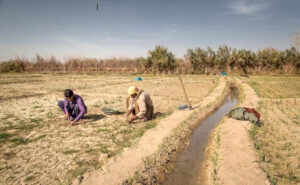KABUL (SW) – Financial constraints and cultural norms remain the main obstacles for the youths when it comes to settling down with a married life, Salam Watandar has found in a series of interviews.
Findings from interviews with 30 young Afghans of marriageable age reveal that despite their desire of getting married, various obstacles have delayed or prevented their marriages. Among these individuals, 12 are female and 18 are male.
Among them, 22 individuals cited economic difficulties and high family expectations, 4 mentioned cultural and social barriers, 2 cited deprivation of the right to choose, and another 2 identified continuing education as reasons for the delays or barriers to marriage.
Of the interviewees, 5 successfully married after overcoming these obstacles while 7 are still only engaged and 18 remain unmarried.
According to the findings, the barriers to marriage differ between genders. Among the 12 interviewed girls, 2 cited deprivation of the right to choose and 10 mentioned financial incapability of their suitors as reasons preventing their marriages.
On the other hand, among the interviewed boys, 14 attributed economic incapability and 4 mentioned cultural barriers as the reasons for delays or barriers to their marriages.
According to the findings in this report, three out of four interviewed young individuals cited economic challenges or familial expectations as reasons for delaying their marriages.
Ahmad Bilal, aged 30, who has not married yet, cites economic difficulties as the reason he could not marry the girl he loved. He adds, “The family of the girl I chose, wasn’t satisfied with low expenses, and I couldn’t afford the expenses they expected, which prevented me from getting married.”
Sahel, who intends to marry, states that the exorbitant expenses imposed by the girl’s family have hindered his marriage plans. “They demand a very high dowry, plus they want specific wedding arrangements. I work in a shop where they consider me just a laborer and say I can’t fulfill these expenses.”
Mahnaz and Tamana explain that economic incapacity of their suitors has prevented them from getting married. Mahnaz elaborates, “If the suitor can’t cover the expenses, including the dowry, it means they can’t provide a suitable wedding for me.”
Tamana adds, “I had several suitors, but due to their problems, I rejected them. Economically, they couldn’t meet my expectations.”
Some of these youths also mention that besides the hefty wedding costs, societal misconceptions are another barrier to their marriages.
Mohammad Ebrahim, interviewed in this report, says he chose a girl for marriage but her family, due to ethnic differences, is not approving. He explains, “We are not close to each other’s families, so her family doesn’t agree, despite our satisfaction. It has been five years since I proposed, but they won’t accept it.”
The right to choose a spouse remains a significant challenge for many young Afghans, particularly women. Among 12 interviewed young women, two expressed their inability to marry due to restrictions on their right to choose.
Fatima, a resident of Kabul, lamented the prevailing traditions within her family that restrict her from marrying anyone who is not a “Sayed”. She explained, “If I want to marry, I must comply with my family’s wishes, like my two sisters did. I have no say in this matter.”
Ayesha, who has not yet married, voiced similar frustrations: “Our families decide for us, despite our legal right to choose our future spouse. This discrepancy often prevents us from making the decision to marry.”
The challenges and difficulties associated with marriage persist even after the wedding. Five respondents who have already married reported ongoing financial struggles. They mentioned that years after their marriages, they are still unable to pay off debts incurred from wedding expenses, adversely affecting their married life.
Abdullah, who has been married for two years and is a father of two, highlighted his financial burden: “I took an 800,000 Afghanis loan to cover the expenses my in-laws demanded for the wedding celebration. I spent two million Afghanis on my wedding and am now struggling with my ordinary job, earning 15,000 Afghanis monthly. I don’t know how to manage my life with this amount of money.”
The religious scholars emphasize the importance of reducing wedding costs and removing cultural barriers that hinder the marriages of young people. They argue that imposing difficult conditions for marriage contradicts Islamic values.
Qotbuddin Mujtahid, a religious scholar, asserts that according to Islamic teachings, the best marriage is one that is made easy. He criticizes: “In the matter of marriage, issues such as setting an excessively high dowry, extravagant expenses, and unnecessary customs and formalities prevent young people from marrying, which is not permissible in Islamic law.”
Sociologists also stress the need for families to remove barriers to marriage and urge the de-facto government to implement programs that facilitate this in society.
Shafiqullah Ansar, a sociologist, says that ignoring economic and cultural challenges in the context of youth marriage leads to long-term negative consequences. He adds, “This leads to an increase in psychological problems among young people because marriage is a major concern for them. Another issue is the rising age of marriage. Another problem is the increase in illegitimate relationships in society, which pushes society towards a moral corruption.”
Abdul Ghafar Sabawon Farooq, spokesperson for the Ministry of the Propagation of Virtue and the Prevention of Vice (MoPVPV), underlines the ministry’s ongoing efforts to remove obstacles to marriage and uphold the legal rights of couples, particularly women.
Many young people in the report cite economic incapacity as a significant barrier to marriage, especially as unemployment rates have risen sharply over the past three years. Some have resorted to small-scale or mass wedding ceremonies due to financial constraints.






